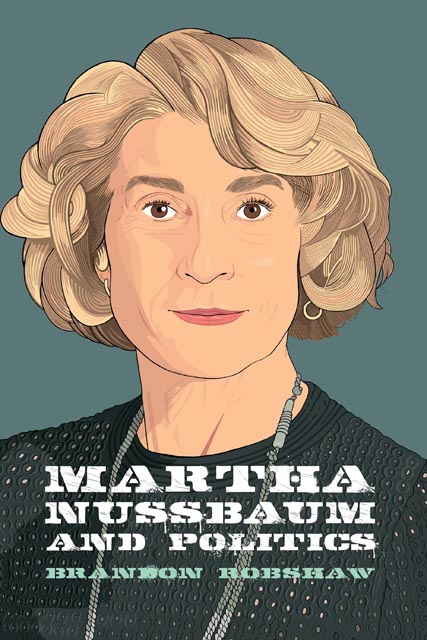Book contents
- Frontmatter
- Contents
- Introduction: A Public Intellectual
- Chapter 1 Nussbaum and the Ancient Greeks: Tragedy, the Luck-Proofing of Life, and Practical Rationality
- Chapter 2 Nussbaum and Education: Socratic Scrutiny, World Citizenship and the Narrative Imagination
- Chapter 3 Nussbaum and Feminism: Liberal Feminism, Adaptive Preferences and FGM
- Chapter 4 Nussbaum and Capabilities: Human Nature, Human Flourishing and the Ten Capabilities
- Chapter 5 Nussbaum and Animal Rights: Capabilities for Animals
- Chapter 6 Nussbaum and Religion: Liberty of Conscience, Accommodation and Burqa Bans
- Chapter 7 Nussbaum and the Emotions: Emotions as Cognitive Judgements – and a Normative Critique of Anger
- Chapter 8 Nussbaum and Global Justice: Cosmopolitanism, Material Aid and Immigration
- Conclusion: An Organic Whole
- Bibliography
- Index
Conclusion: An Organic Whole
Published online by Cambridge University Press: 18 October 2023
- Frontmatter
- Contents
- Introduction: A Public Intellectual
- Chapter 1 Nussbaum and the Ancient Greeks: Tragedy, the Luck-Proofing of Life, and Practical Rationality
- Chapter 2 Nussbaum and Education: Socratic Scrutiny, World Citizenship and the Narrative Imagination
- Chapter 3 Nussbaum and Feminism: Liberal Feminism, Adaptive Preferences and FGM
- Chapter 4 Nussbaum and Capabilities: Human Nature, Human Flourishing and the Ten Capabilities
- Chapter 5 Nussbaum and Animal Rights: Capabilities for Animals
- Chapter 6 Nussbaum and Religion: Liberty of Conscience, Accommodation and Burqa Bans
- Chapter 7 Nussbaum and the Emotions: Emotions as Cognitive Judgements – and a Normative Critique of Anger
- Chapter 8 Nussbaum and Global Justice: Cosmopolitanism, Material Aid and Immigration
- Conclusion: An Organic Whole
- Bibliography
- Index
Summary
Having covered Nussbaum's thirty-five-year philosophical career, we are now in a position to see how her oeuvre constitutes an organic whole. As I said at the outset, she has made important contributions in many areas of philosophy. But those areas are not discrete. The connections between her ideas are manifold and strong. For example, her work on Aristotle's ethics feeds into her capabilities approach, for that depends on an idea of human flourishing; her capabilities approach feeds into her work on animal rights, for that depends on supplying the capabilities appropriate to the nature of the species; the idea that each species has a nature which can flourish in a certain way connects back to Aristotle. Or, again: Nussbaum's liberal philosophy underpins her theory of education as well as her theory of feminism as well as her defence of religious freedom. And her liberal philosophy finds its fullest expression in her capabilities approach which is applied to feminism, development, human rights, animal rights and global justice. Her contributions to different fields do not exist in isolation but are connected and mutually reinforcing. Nussbaum herself notes that her work falls into two halves:
My own work, like a lot of philosophical work in the past few decades, has discussed political institutions and laws, making general arguments about what justice is and what basic rights and entitlements all citizens have …
The other half of my career has focused on the nature of the emotions and their role in our search for the good life. (2019: 12)
But these two halves are interconnected, too. For what basic rights and entitlements citizens ought to have depends on a claim about human emotional needs; and fulfilment of those emotional needs depends on just institutions. The metaphor of an organic whole suggests a living organism, and that's an appropriate image for Nussbaum's work. For as well as the internal coherence noted above, there is constant change and growth in Nussbaum's thought. For example, her conception of anger has changed. When she wrote Sex and Social Justice (1999) she conceived of anger as a positive emotion, necessary to effectuate change; ‘justified anger’ made it onto her list of capabilities, as an example of the range of emotions we should be capable of.
- Type
- Chapter
- Information
- Martha Nussbaum and Politics , pp. 185 - 187Publisher: Edinburgh University PressPrint publication year: 2023



